Electric Bus Charging Stations
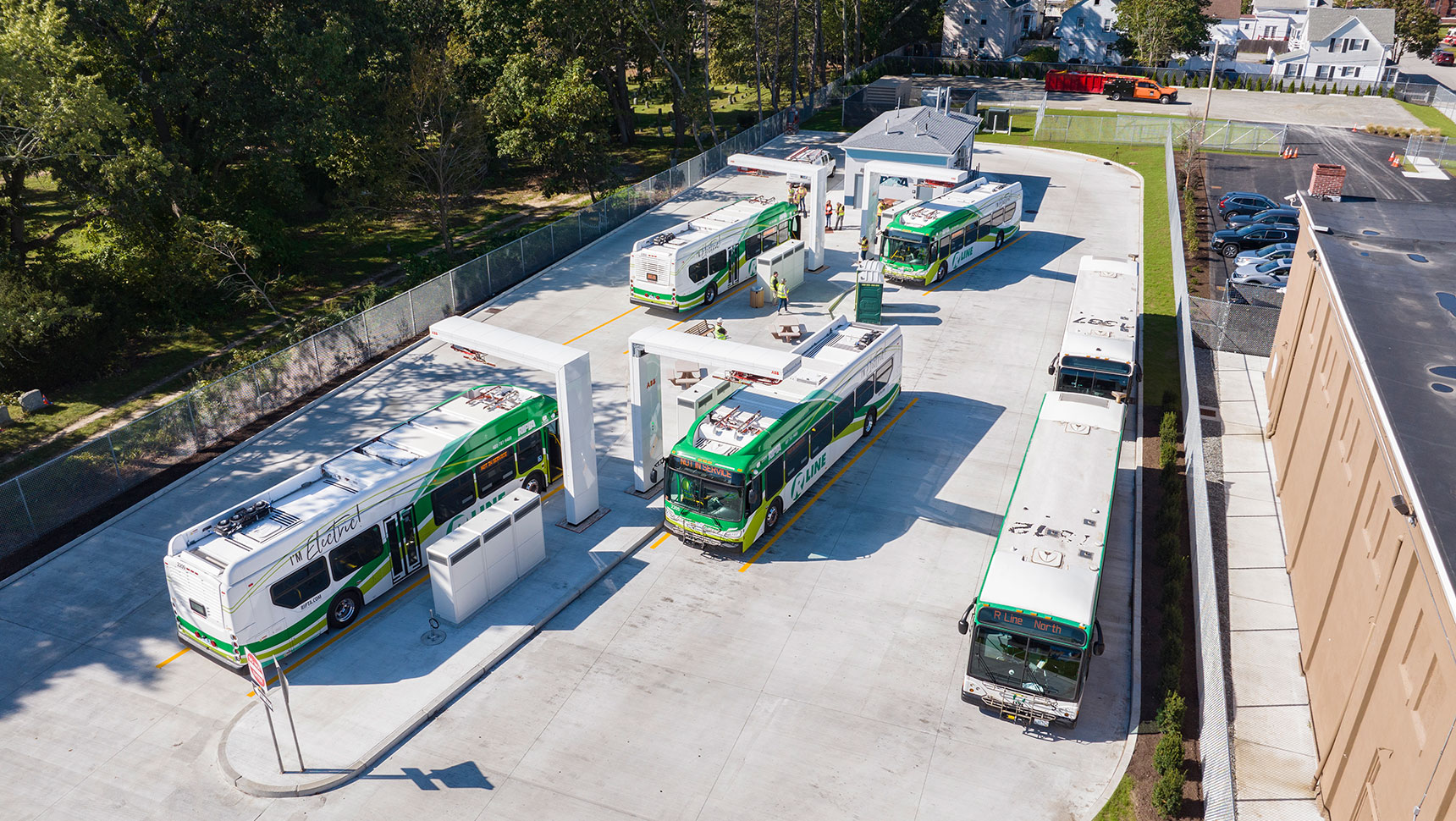

The Rhode Island Public Transit Authority (RIPTA) provides public transportation to more than 40,000 Rhode Island commuters daily. Buses are their primary mode of transportation, and they have many facilities throughout the state that administer operations. These facilities require both routine maintenance and forward-thinking upgrades to ensure the best service for their customers.
As the transportation sector is a significant contributor to greenhouse gas emissions, RIPTA is invested in reducing its carbon footprint as part of the State of Rhode Island’s Act on Climate, which committed to reducing state-wide carbon emissions to net-zero by 2050.
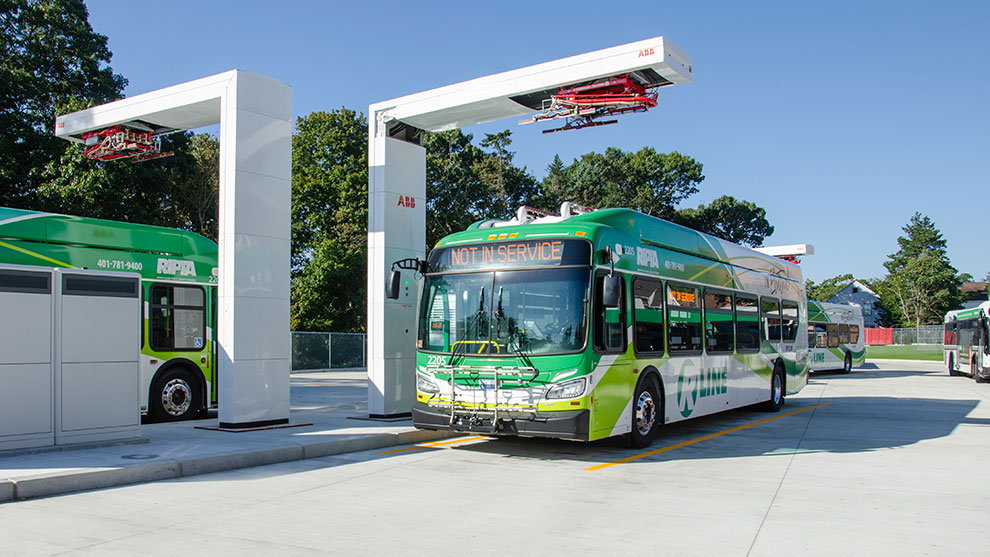
RIPTA has recently invested in upgrading its fleet to electric buses to replace the aging diesel fleet. These electric buses require fast and reliable charging stations that need significant infrastructure upgrades and maintenance.
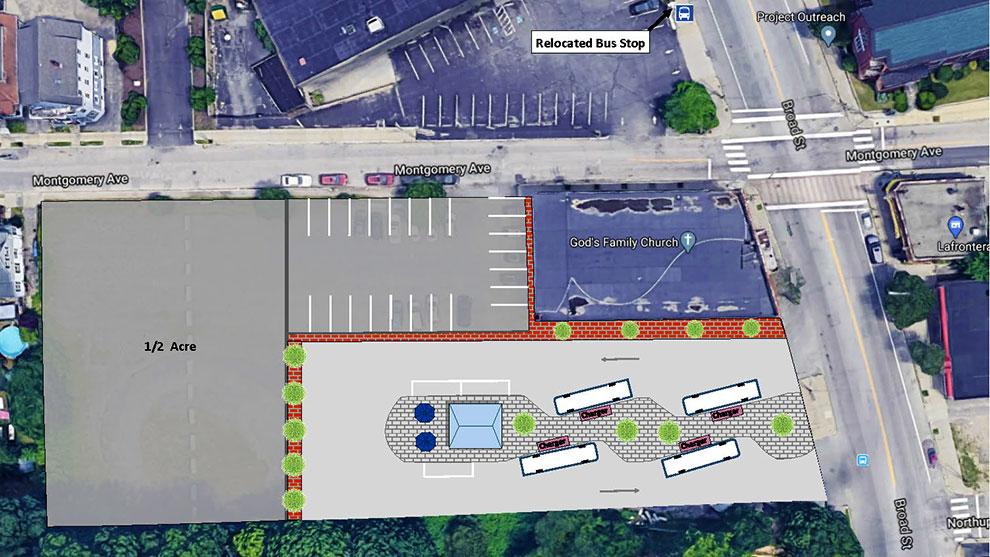
Fuss & O’Neill worked with RIPTA to determine the optimal facilities for the electric buses and their charging stations. After the site selections were made, our team assessed the existing electrical infrastructure at each site and worked with National Grid (now Rhode Island Energy) to determine the optimal facility for the buses and chargers, as well as the existing electrical service impacts. We coordinated closely with the manufacturer and RIPTA to determine locations of equipment, day-to-day access for RIPTA personnel, and maintenance of the equipment.
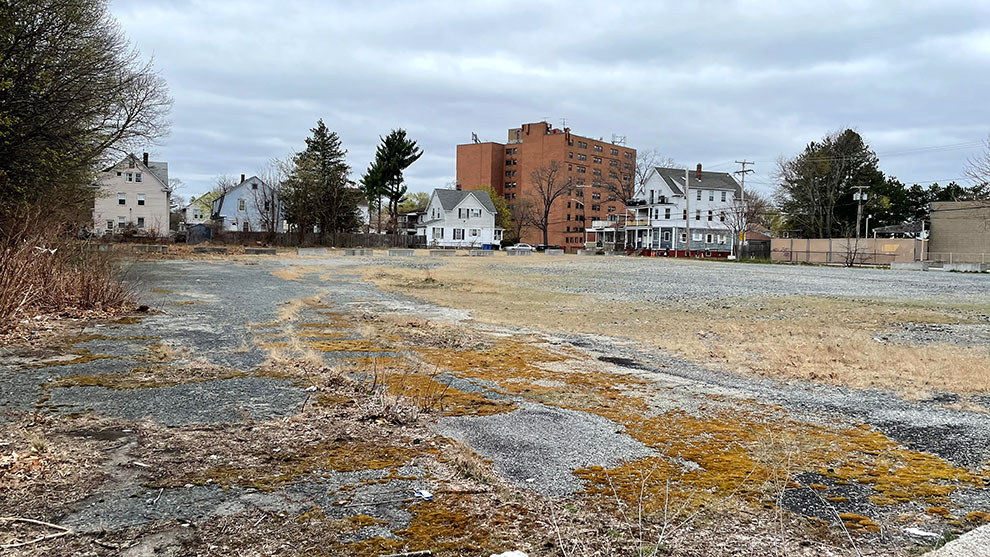
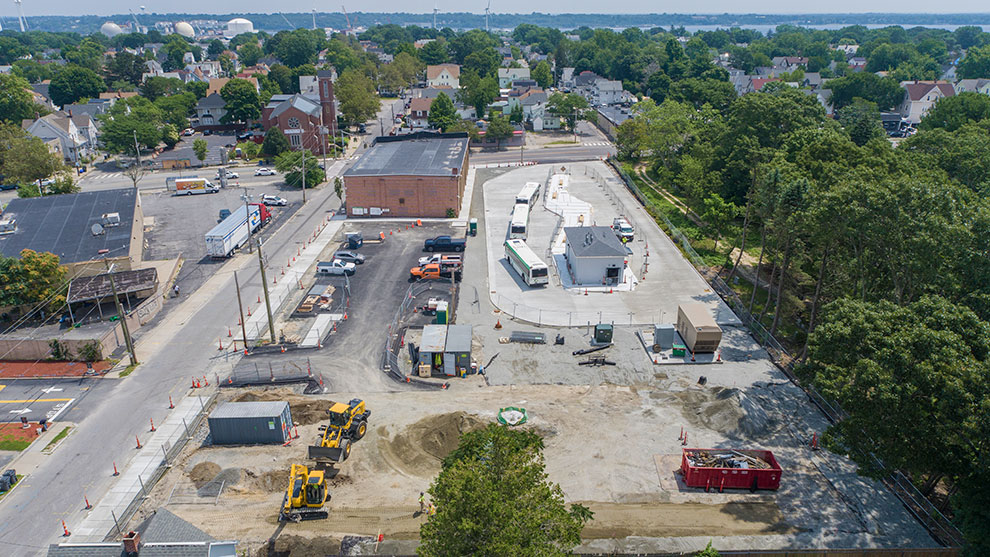
Initially, three 40-foot Proterra Catalyst E2 pilot buses were leased by RIPTA and set up for charging at RIPTA’s existing maintenance facility in Providence. Each bus required a 60kW charging unit, for total of 180kW, which was a significant load on existing buildings. Once the facility was determined, Fuss & O’Neill designed the necessary electrical distribution system modifications to incorporate the Power Control Systems (PCS) and dispensers. We are currently working with RIPTA and Rhode Island Energy to address additional buses and subsequent electrical load, including potentially incorporating solar PV at these facilities to offset the electrical load.
Additionally, RIPTA used lessons learned from the leased electric buses for the purchase of New Flyer Xcelsior CHARGE NG™ 40-foot battery-electric transit buses. When added to RIPTA’s existing hybrid diesel electric buses (that combine diesel with battery power), these all electric buses give RIPTA a fleet that consists of approximately 36% low- and zero-emission vehicles.
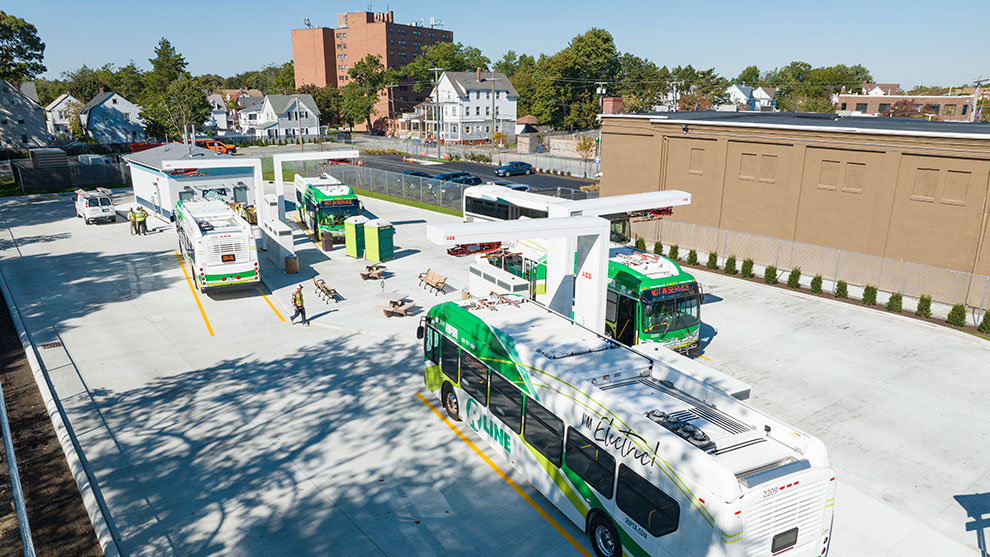
The New Flyer buses replace an equivalent number of diesel buses, which provides RIPTA with its first fully electric bus fleet. This fleet will serve the R-Line, which is RIPTA’s most frequently used and highest-ridership route, with rapid bus service that connects Cranston, Providence, and Pawtucket. A 1.5-acre RIPTA-owned property in Cranston at the southern end of the R-Line was selected as the location to develop the Northeast’s first in-line charging station.
This station location was selected to help revitalize the Washington Park neighborhood, lower emissions in an area that has been adversely affected by air pollution, and affirms RIPTA’s commitment towards achieving net-zero emissions.
Fuss & O’Neill worked with RIPTA from initial site selection and feasibility studies through construction oversight. We provided a comprehensive range of services included environmental due diligence, site assessment, remedial planning, civil design, geotechnical engineering, electrical engineering, and construction oversight.
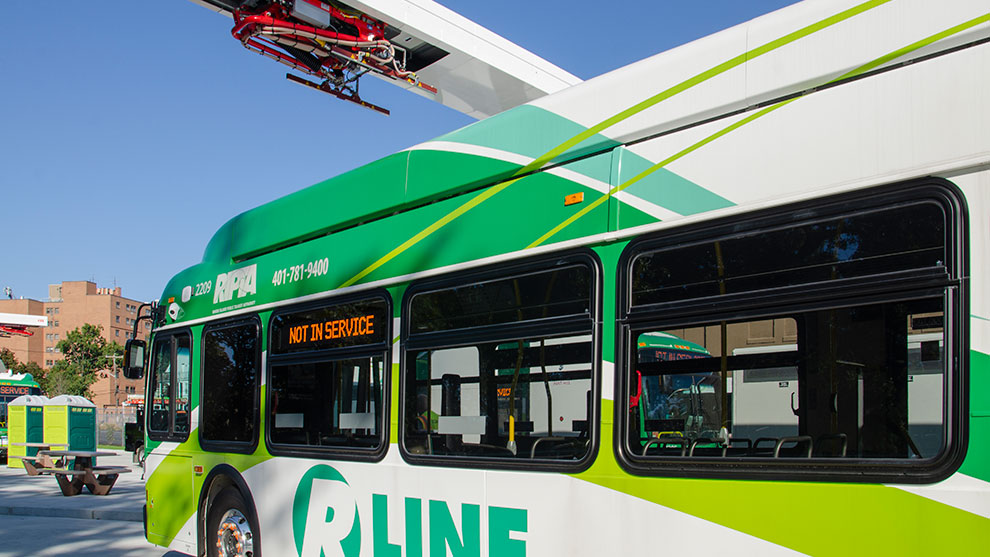
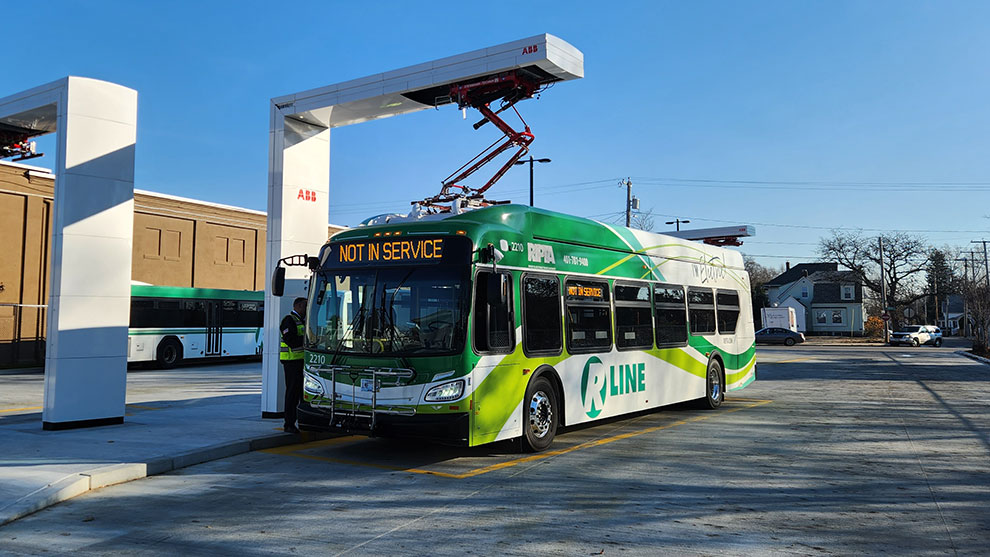
After initial due diligence, feasibility studies, and preparation of concept designs, Fuss & O’Neill worked with RIPTA to bid out the construction as a design-build project, which allowed RIPTA to proceed on an expedited schedule.
We assisted RIPTA in reviewing bids and selecting a design-build team. We then worked with RIPTA and the design-build team through the remainder of the design, permitting, and construction process, working as a cohesive team to complete the project.
Throughout the project, Fuss & O’Neill served as RIPTA’s engineer overseeing the completion of the project.